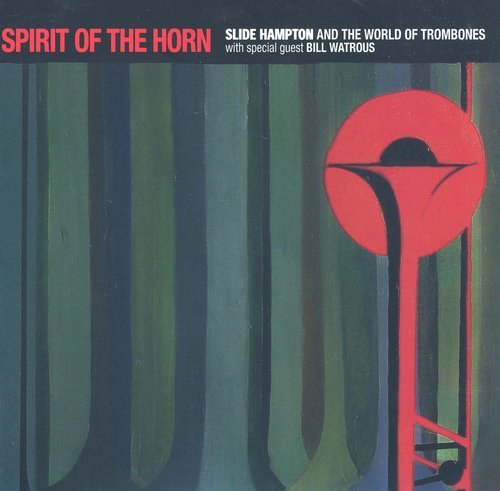Josh Thompson - Change The Lost Record (2017)
- 08 Jun, 17:14
- change text size:
Facebook
Twitter
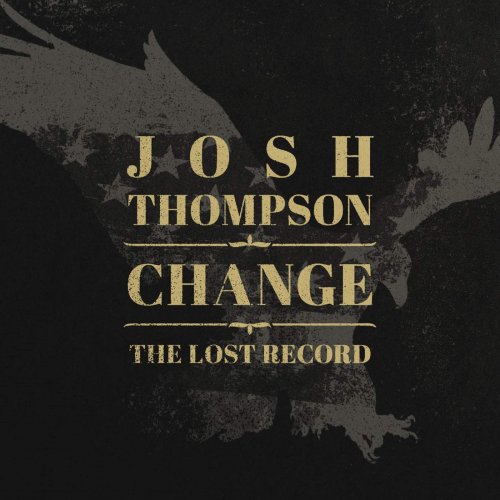
Artist: Josh Thompson
Title: Change The Lost Record
Year Of Release: 2017
Label: ole
Genre: Country
Quality: Mp3 320 kbps / FLAC (tracks)
Total Time: 39:42 min
Total Size: 94 / 281 MB
WebSite: Album Preview
Tracklist:Title: Change The Lost Record
Year Of Release: 2017
Label: ole
Genre: Country
Quality: Mp3 320 kbps / FLAC (tracks)
Total Time: 39:42 min
Total Size: 94 / 281 MB
WebSite: Album Preview
01. Same Ol’ Plain Ol’ Me
02. We Don’t Have Work
03. Over Me
04. Change
05. Gotta Go to Heaven
06. Livin’ Like Hank (feat. Justin Moore)
07. Daddy Had a Beer
08. Comin’ Around
09. Rust
10. I Love Me Some You
11. I Like to Believe in That
12. Something’s Gonna Get Us All
If you want to know Josh Thompson, just listen to the lyrics of his music. Thompson showcases his undeniable gift for writing with songs like the anthemic “Way Out Here,” or the unapologetic “Blame It On Waylon,” and on his upcoming projects, the “aw, shucks” admittance of “Same Ol’ Plain Ol’ Me,” the nod to his humble background, “Daddy Had A Beer,” and the breathtakingly poignant “I Like To Believe In That.”
They’re songs born of a hard-working, blue-collar raising. The son of a Wisconsin concrete worker, destined to follow in the steel-toed boots of a laborer, Josh veered to the left when he picked up a guitar, but he didn’t quite realize the course he had steered himself down until much later.
“I got a guitar for my birthday when I was 21 years old. I asked my parents for it because I wanted to play songs around the campfire,” he explains. “There had been people in my circle of family and friends who would play around the campfire and I always thought that would be really awesome. I wanted to learn to play Merle Haggard and Tom T. Hall songs.”
Before long it wasn’t enough to just play guitar and sing around the campfire. Like the stone cold country icons that he grew up listening to and admiring, Josh had something to say. “What made me want to play guitar and write songs was what attracted me to country music. People like George Jones, Merle Haggard, Hank Senior, Jimmie Rodgers, Hank Snow and Lefty Frizzell. That was the country I was first introduced to.”
So he began writing. He smiles and continues, “I had always written before then, mostly things like poems. I could never tell you what a past participle was or anything like that, but creative writing in school is the only time I passed English.” And six months after picking up the guitar he had written his first song. "It was horrible,” laughs Josh.
In spite of his initial self-proclaimed songwriting failure, Josh tapped into the Midwestern work ethic his father had instilled in him, along with a growing self-confidence, and continued to hone his craft. He says, “I had a passion for it and I knew that I could write great songs if I practiced. I sent a few into one of those songwriting critique companies and they basically said it was horrible and I had no business writing songs. That just fired me up even more to get to Nashville and prove them wrong.”
While he may have picked up a guitar a little later than most, his natural talent was apparent. Josh made the move to Nashville in January 2005 and by August, he had signed his first publishing deal. One of the first songs he wrote, “Church Pews Or Bar Stools,” became a Jason Aldean cut.
Thompson may have made the move to Nashville to become a full-time songwriter, but he quickly realized a record deal was in his sights after gaining some momentum in Music City. He explains, “It was four years and one day after moving to Nashville that I got offered a record deal, so in my first four years in the city, I landed a publishing deal, lost a publishing deal, sold my truck, got a van, got a band together, started doing over 100 dates a year, got another publishing deal, got my first cut and got offered a record deal.”
That first publishing deal and recording contract may have come relatively easily by Nashville’s “10 year overnight sensation” standards, but the road that followed was a bit more bumpy. His first label, Columbia Records, released his debut album, Way Out Here, in 2010, which offered two Top 20 singles, “Beer On The Table” and “Way Out Here,” and the romping “Won’t Be Lonely Long.” Music industry turnover led to Josh transferring to RCA Records and new label leadership in the midst of recording his sophomore album, Change. That project was shelved, and in true art imitates life fashion, change became the mantra for the following four years of his career.
Josh left the label and a new recording contract was quickly signed with Show Dog Universal. He wrote and recorded what then became his sophomore disc, Turn It Up. The album debuted in the Top 10 on Billboard’s Top Country Albums chart and produced two singles—“Cold Beer With Your Name On It” and “Wanted Me Gone.”
After Show Dog Universal restructured, once again leaving Josh without a record label home, he remained optimistic knowing he had an ace up his sleeve. Change, his intensely personal, unreleased RCA album project recorded in 2011, was under his complete control. Fans were requesting the record, the timing was right and he now had the artistic freedom to share the project. He knowingly chuckles and confesses, “I always knew I was going to release it, but I wanted to wait however long it took, to be able to release it on my own. It’s kind of been sitting on my shoulder for four years. It’s like closure. It’s like this relationship that ended four years ago, but she still lives with me.”
Despite becoming the living embodiment of his album title, Change, Josh never let the circumstances overshadow the opportunity that he felt confident his future held. He, instead, took charge and found a partner in ole Digital/The Orchard that not only believed in his talent, but in his vision. And Change became a revolution and a catalyst that put Josh in charge of his own destiny.
Change: The Lost Record, Volume One (out October 9) and Volume Two (to be released early 2016) contain some of his most personal songs to date. There are songs that tell the story of his humble, yet rich childhood like “Daddy Had A Beer” and the morals and ethics he was raised with like “I Like To Believe In That.” You’ll find anthems that typify the cliché, “work hard, play harder,” in the tunes “Work In The Mornin’” and the romping “Rust.” You’ll hear his unapologetic declaration of an honest existence in “Same Ol’ Plain Ol’ Me.” Josh laughs and defines a good songwriter as “somebody who has lived a little bit, been in jail, got their heart broken, worked a hard job, has values, been drunk, passed out in a ditch…you know, all the good things in life.”
He’s especially proud of “Daddy Had A Beer.” It was the first song he wrote in the house he bought in rural Nashville, but it transports you to Josh’s Cedarburg, Wisconsin home through imagery so vivid that you can almost smell dinner on the stove in his parent’s kitchen. It is magical, it is country and it is the type of song that Josh wants to be remembered for. It’s a song that Josh’s late father would have liked. And it’s a lyric Merle or Tom T. would have been proud to write.
“I’ll say this,” he begins. “As a songwriter, I’ve written every style of country music. When it comes to what I want to put on my own records, I’ve never had any desire to chase anything that’s popular. What I like about country music is the honesty and the thoughtful lyrics. Good or bad, that’s the old man in me.”
“Life definitely isn’t easy for a lot of people,” Thompson surmises. “I think if there’s one thing people can cling to it’s their beliefs and their way of life. I think people need that simplicity in country music and that was my goal for this record. People who hear this record will know how I was raised, they know that I’m into working hard and drinking beer, they know that I’m a Christian and they know I sometimes tend toward the dark side. These songs are my picket sign – they’re all I got.”
They’re songs born of a hard-working, blue-collar raising. The son of a Wisconsin concrete worker, destined to follow in the steel-toed boots of a laborer, Josh veered to the left when he picked up a guitar, but he didn’t quite realize the course he had steered himself down until much later.
“I got a guitar for my birthday when I was 21 years old. I asked my parents for it because I wanted to play songs around the campfire,” he explains. “There had been people in my circle of family and friends who would play around the campfire and I always thought that would be really awesome. I wanted to learn to play Merle Haggard and Tom T. Hall songs.”
Before long it wasn’t enough to just play guitar and sing around the campfire. Like the stone cold country icons that he grew up listening to and admiring, Josh had something to say. “What made me want to play guitar and write songs was what attracted me to country music. People like George Jones, Merle Haggard, Hank Senior, Jimmie Rodgers, Hank Snow and Lefty Frizzell. That was the country I was first introduced to.”
So he began writing. He smiles and continues, “I had always written before then, mostly things like poems. I could never tell you what a past participle was or anything like that, but creative writing in school is the only time I passed English.” And six months after picking up the guitar he had written his first song. "It was horrible,” laughs Josh.
In spite of his initial self-proclaimed songwriting failure, Josh tapped into the Midwestern work ethic his father had instilled in him, along with a growing self-confidence, and continued to hone his craft. He says, “I had a passion for it and I knew that I could write great songs if I practiced. I sent a few into one of those songwriting critique companies and they basically said it was horrible and I had no business writing songs. That just fired me up even more to get to Nashville and prove them wrong.”
While he may have picked up a guitar a little later than most, his natural talent was apparent. Josh made the move to Nashville in January 2005 and by August, he had signed his first publishing deal. One of the first songs he wrote, “Church Pews Or Bar Stools,” became a Jason Aldean cut.
Thompson may have made the move to Nashville to become a full-time songwriter, but he quickly realized a record deal was in his sights after gaining some momentum in Music City. He explains, “It was four years and one day after moving to Nashville that I got offered a record deal, so in my first four years in the city, I landed a publishing deal, lost a publishing deal, sold my truck, got a van, got a band together, started doing over 100 dates a year, got another publishing deal, got my first cut and got offered a record deal.”
That first publishing deal and recording contract may have come relatively easily by Nashville’s “10 year overnight sensation” standards, but the road that followed was a bit more bumpy. His first label, Columbia Records, released his debut album, Way Out Here, in 2010, which offered two Top 20 singles, “Beer On The Table” and “Way Out Here,” and the romping “Won’t Be Lonely Long.” Music industry turnover led to Josh transferring to RCA Records and new label leadership in the midst of recording his sophomore album, Change. That project was shelved, and in true art imitates life fashion, change became the mantra for the following four years of his career.
Josh left the label and a new recording contract was quickly signed with Show Dog Universal. He wrote and recorded what then became his sophomore disc, Turn It Up. The album debuted in the Top 10 on Billboard’s Top Country Albums chart and produced two singles—“Cold Beer With Your Name On It” and “Wanted Me Gone.”
After Show Dog Universal restructured, once again leaving Josh without a record label home, he remained optimistic knowing he had an ace up his sleeve. Change, his intensely personal, unreleased RCA album project recorded in 2011, was under his complete control. Fans were requesting the record, the timing was right and he now had the artistic freedom to share the project. He knowingly chuckles and confesses, “I always knew I was going to release it, but I wanted to wait however long it took, to be able to release it on my own. It’s kind of been sitting on my shoulder for four years. It’s like closure. It’s like this relationship that ended four years ago, but she still lives with me.”
Despite becoming the living embodiment of his album title, Change, Josh never let the circumstances overshadow the opportunity that he felt confident his future held. He, instead, took charge and found a partner in ole Digital/The Orchard that not only believed in his talent, but in his vision. And Change became a revolution and a catalyst that put Josh in charge of his own destiny.
Change: The Lost Record, Volume One (out October 9) and Volume Two (to be released early 2016) contain some of his most personal songs to date. There are songs that tell the story of his humble, yet rich childhood like “Daddy Had A Beer” and the morals and ethics he was raised with like “I Like To Believe In That.” You’ll find anthems that typify the cliché, “work hard, play harder,” in the tunes “Work In The Mornin’” and the romping “Rust.” You’ll hear his unapologetic declaration of an honest existence in “Same Ol’ Plain Ol’ Me.” Josh laughs and defines a good songwriter as “somebody who has lived a little bit, been in jail, got their heart broken, worked a hard job, has values, been drunk, passed out in a ditch…you know, all the good things in life.”
He’s especially proud of “Daddy Had A Beer.” It was the first song he wrote in the house he bought in rural Nashville, but it transports you to Josh’s Cedarburg, Wisconsin home through imagery so vivid that you can almost smell dinner on the stove in his parent’s kitchen. It is magical, it is country and it is the type of song that Josh wants to be remembered for. It’s a song that Josh’s late father would have liked. And it’s a lyric Merle or Tom T. would have been proud to write.
“I’ll say this,” he begins. “As a songwriter, I’ve written every style of country music. When it comes to what I want to put on my own records, I’ve never had any desire to chase anything that’s popular. What I like about country music is the honesty and the thoughtful lyrics. Good or bad, that’s the old man in me.”
“Life definitely isn’t easy for a lot of people,” Thompson surmises. “I think if there’s one thing people can cling to it’s their beliefs and their way of life. I think people need that simplicity in country music and that was my goal for this record. People who hear this record will know how I was raised, they know that I’m into working hard and drinking beer, they know that I’m a Christian and they know I sometimes tend toward the dark side. These songs are my picket sign – they’re all I got.”

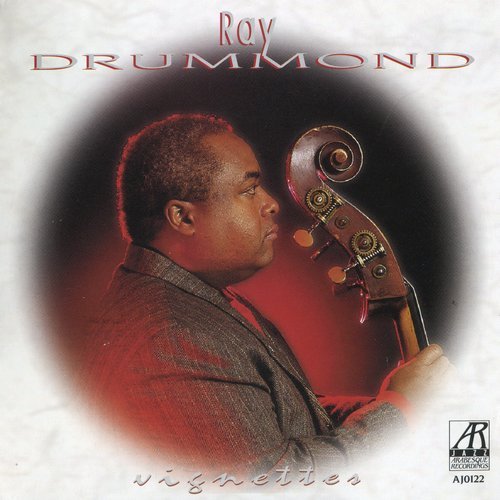
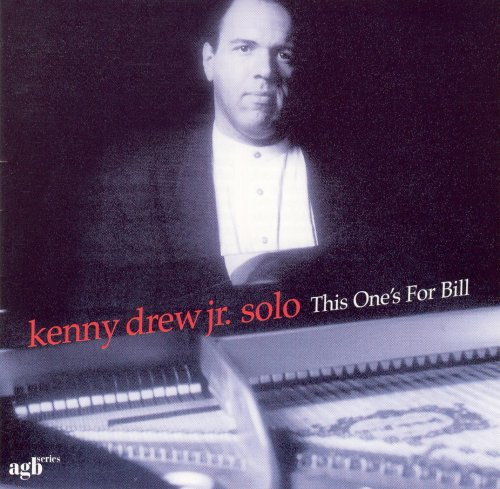

![Vivian Rosie - Twilight Voodoo (2026 Remaster) [Hi-Res] Vivian Rosie - Twilight Voodoo (2026 Remaster) [Hi-Res]](https://www.dibpic.com/uploads/posts/2026-02/1771389602_cover.jpg)
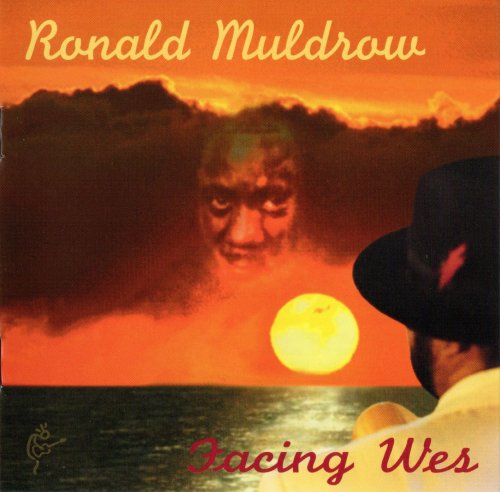
![Anna Kolchina - Reach for Tomorrow (2026) [Hi-Res] Anna Kolchina - Reach for Tomorrow (2026) [Hi-Res]](https://img.israbox.com/img/2026-02/19/quc4em3qn6fgke1rwewkbdxg5.jpg)

![Nicole McCabe - Color Theory (2026) [Hi-Res] Nicole McCabe - Color Theory (2026) [Hi-Res]](https://www.dibpic.com/uploads/posts/2026-02/1771327761_folder.jpg)
